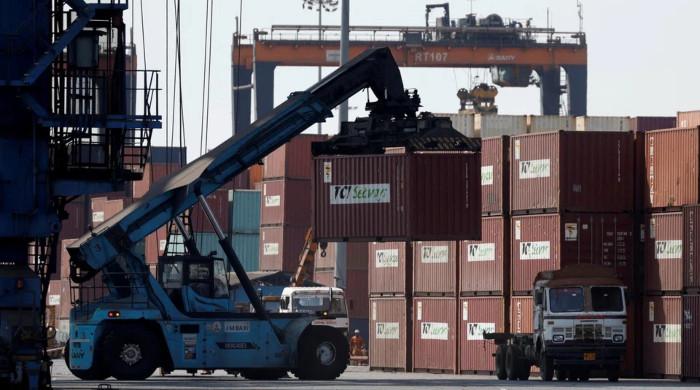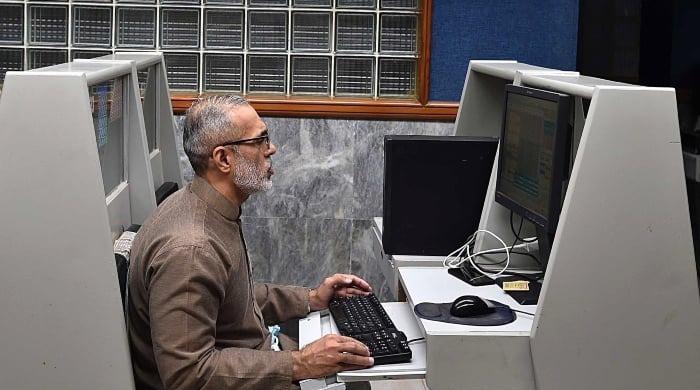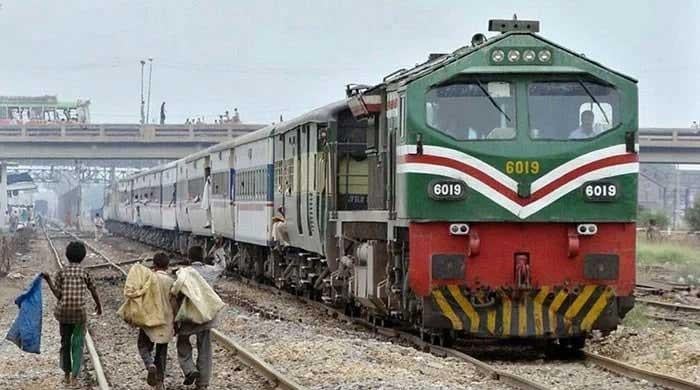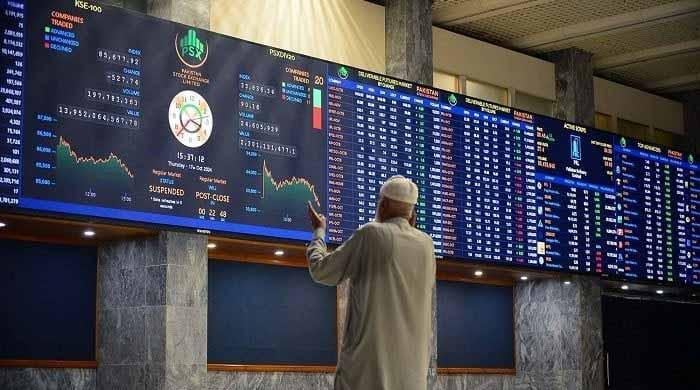Pakistan fails to match regional peers in living standards: IMF
Global lender reviews its programmes in past decade, says country's underlying challenges have persisted
October 12, 2024
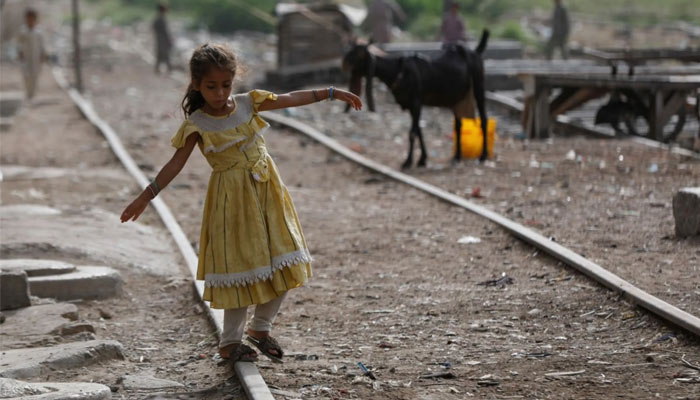
- Pakistan's peers achieved more than twice its GDP per capita rate.
- Global lender evaluates Pakistan’s performance over last 10 years.
- Fund recommends enhanced ownership as key lesson learned.
The International Monetary Fund (IMF) has underscored "the need for urgent" policy reforms in Pakistan in its recent staff report, saying that the country has failed to match the living standards of its peers in the region, The News reported on Saturday.
"Pakistan has been falling behind its peers in recent decades in terms of income per capita, competitiveness, and export performance. From 2000 to 2022, Pakistan’s GDP per capita grew at an average annual rate of only 1.9%," the report read.
As per the report, Pakistan's peers achieved more than twice the aforementioned rate.
"Bangladesh averaged growth of 4.5%, India reached 4.9%, Vietnam 5%, and China a growth of about 7.5%," the Washington-based lender stated.
The IMF has reviewed the last 10 years of its sponsored programmes in Pakistan and acknowledged that underlying challenges have persisted, recommending enhanced ownership as a key lesson learned.
The IMF evaluated Pakistan’s performance over the past decade. During this period, Pakistan had three upper credit tranche arrangements and one use of the Rapid Financing Instrument under the General Resource Account (GRA).
These programmes were generally initiated against the backdrop of weak external conditions or unprecedented external shocks, such as the COVID-19 pandemic and floods, combined with prolonged fiscal and external vulnerabilities, along with structural challenges. Although early progress was often made due to stronger policies under fund-supported programmes, this progress was not sustained, leading to the re-emergence of imbalances and the need for successor programmes.
To be effective, programme conditionality needs to evolve to capture emerging risks and policy issues. For the new Extended Fund Facility (EFF), this is particularly important. During the 2013 EFF, reform efforts weakened, leading to 13 waivers being required. While spending and external borrowing were initially contained, large future borrowing commitments set the stage for the reemergence of imbalances.
It has emerged, under the IMF’s $7 billion EFF, Pakistan has accepted 22 conditions, including a written commitment to phase out incentives for Special Economic Zones (SEZs) by 2035.
The government will prepare a phased plan by June 2025 to eliminate all current SEZ incentives.
Additionally, Pakistan has agreed to adjust gas tariffs by the end of December 2024 and impose a 5% Federal Excise Duty (FED) on fertilisers and pesticides in the 2025-26 budget.
To enhance the anti-corruption framework’s effectiveness, the government will amend the Civil Servants Act by February 2025.
It will ensure that asset declarations of high-level public officials (including assets beneficially owned by them or their family members) are filed digitally and made publicly accessible through the Federal Board of Revenue (FBR), with a robust risk-based verification framework by a single authority.
The government also aims to achieve net-zero circular debt flow for FY25 through timely tariff increases, targeted subsidies, and cost-reducing reforms in the power sector.
"Pakistan’s capacity to repay is subject to significant risks and remains critically dependent on policy implementation and timely external financing,” the IMF staff report stated.
While the IMF commended Pakistan’s policy implementation under the 2023–24 SBA, it emphasised that sustained efforts are needed to ensure macroeconomic stability and sustainable growth.
The SBA achieved its short-term objectives, but structural challenges persist. To break the cycle of economic boom and bust, the IMF stressed the need for Pakistan to fundamentally transform its economic policymaking, reduce the state’s role in the economy, strengthen the business environment, attract private investment, and invest in human capital while protecting the most vulnerable.
Pakistani authorities recognise these challenges and have committed to strengthening the country’s resilience and economic prospects. Strong ownership of sound macroeconomic policies and decisive reform implementation is essential. Fiscal efforts in the FY25 budget and ambitious reforms to broaden the tax base are crucial to strengthening fiscal sustainability.
The adoption of the FY25 budget marks an important first step, with high-quality revenue measures targeting general sales tax, personal income tax, and corporate income tax for exporters and developers. These steps aim to enhance fairness, transparency, and revenue collection.
The IMF confirmed that the federal government took steps to boost revenues by Rs1,723 billion, including enhancing direct taxes by Rs240 billion, raising personal income and corporate tax rates, and improving GST collection by Rs286 billion. The government also improved administration to bring in Rs250 billion, expanded FED to generate Rs413 billion, and rationalised customs tariffs for Rs65 billion.
Pakistan’s low tax-to-GDP ratio necessitates continued efforts to broaden the tax base through equitable measures. Near-term reforms include provincial agricultural income taxation and the elimination of privileges, exemptions, and concessions, along with revenue administration reforms.
These will support fiscal consolidation, create space for essential investments in human capital, and maintain a downward trajectory for public debt.
Provinces must also implement agricultural income tax reforms and support revenue mobilisation, including through property taxation, to meet their primary surplus targets.
Reforms in public investment management, liquidity management, and debt reduction remain critical. Monetary policy must remain tight and data-dependent to control inflation and maintain exchange rate flexibility. The SBP’s commitment to transparency in foreign exchange operations is essential for rebuilding reserves.
Attracting high-quality investment will require adherence to current account regulations, including the repatriation of dividends and profits.




